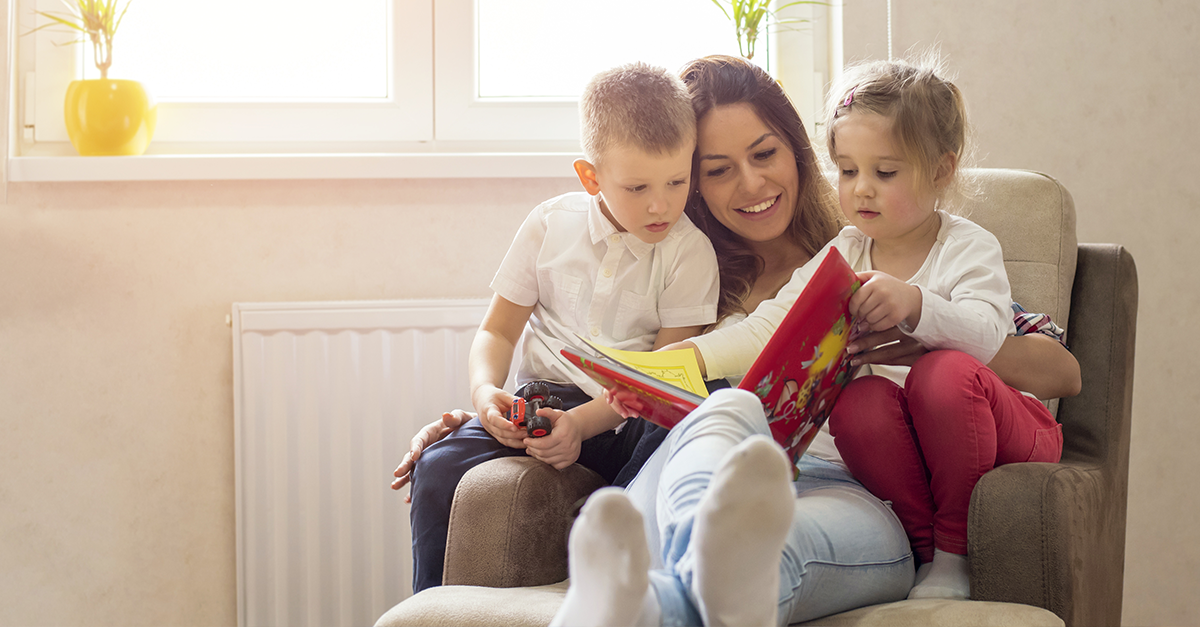How Reading Aloud Can Help Children with Anxiety

I recently read a sobering cover story in The Atlantic on the rise of anxiety in children. The article’s author Kate Julian begins by looking at the grim statistics from PEW Research on the growing percentage of kids who are diagnosed with anxiety or other related disorders. There has been a steady uptick since the early 2000s, and there is also preliminary research that suggests each generational cohort is more at risk than the preceding one.
After this survey of research, Julian seeks to understand why anxiety has increased, and how to deal with it. One sentence from the article really jumped out at me. Julian writes:
Anxiety disorders are well worth preventing, but anxiety itself is not something to be warded off. It is a universal and necessary response to stress and uncertainty.
In fact, she goes on to note that trying to protect kids from any feeling of anxiety or shielding them from any risk of suffering can undermine the resilience we all need to deal with the curveballs of life.
Can Reading Aloud Help Children with Anxiety?
I’m not an expert, and the question of how to fully deal with the rise of anxiety in today’s kids is above my paygrade, but I do believe one source of help is found in parents reading stories aloud to their kids. I have increasingly grown to realize how important this was in my own life, in helping me to cope with early childhood struggles, and in giving me the language to understand and express my own anxieties. My experience of reading aloud fits with the empirical data. In an article for PBS, Deborah Farmer Kris writes about the immense power of reading aloud. She cites several studies that have found clear cognitive and emotional benefits associated with reading aloud to kids, especially when it is the parent who is doing so.
In one such recent study cited in the PBS article, the researchers write that when parents read aloud, their children “learn to use words to describe feelings that are otherwise difficult and this enables them to better control their behavior when they have challenging feelings like anger or sadness.” This makes intuitive sense: stories provide us with language and imagery to make sense of our own experiences, desires, and anxieties. And when parents and children direct attention to the same story, the language and imagery can be a shared basis for dialogue about what children are experiencing.
As it turns out, even the very act of reading can help us (adults and children) to destress. The Telegraph reports on a British study from 2009 that indicates that even six minutes of reading a day can lower stress levels by 68%. Reading is a calming activity, both physiologically and mentally. And I think even just devoting the mental space and time is a helpful way of lowering anxiety. In my opinion, the content of our stories matters too. I believe stories that feature children acting bravely and with integrity and purpose can be an especially profound source of empowerment for kids. And indeed, such stories are able to delve deeply into heavy themes like death in ways children can respond to, which is far more helpful for their development than shielding them from these topics altogether.
In my own life, stories like Where The Wild Things Are, Charlotte’s Web, and To Kill A Mockingbird were all formative. These stories, and so many others, provided me with protagonists I could identify with, who wrestled with emotions I wrestled with, and who learned to face their world with courage and responsibility. And these stories provided my whole family with a shared reference point for our own family culture, helping us all to better communicate with each other.
In the end, reading aloud to your kids will not fully eradicate all anxiety, and to Julian’s point, banishing all anxiety probably isn’t best anyway. But stories are powerful; they inspire us, give us tools to name our fears and process our emotions, and provide a common foundation for dialogue with the people in our life who stand ready to love and support us, come what may.
Recommended Resource
Harvard University’s Center on The Developing Child has an excellent introduction to the science of resilience, that includes practical advice for how to deal with particularly stressful times.